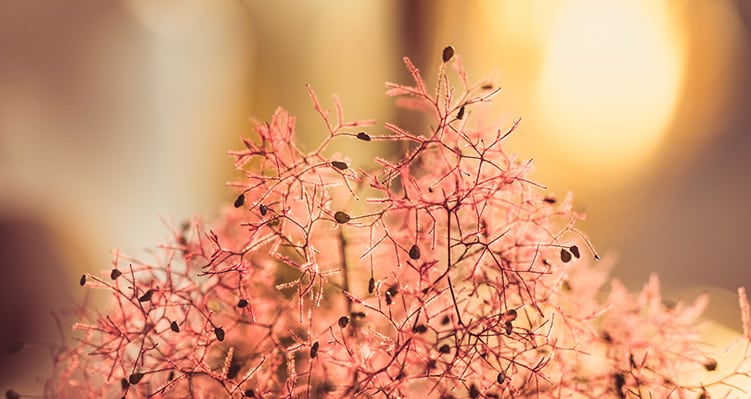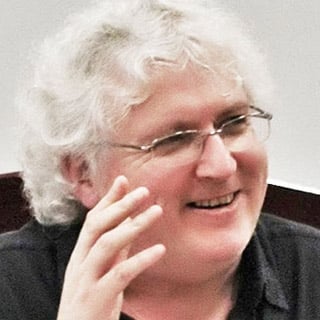Power to Change the Future: Our Karmic Plate
Category: Buddhist Path | Mind Trainer Articles | Popular

Meditation can change the trajectory of our lives
The idea of karma is that what we’ve got on our plate right now has been concocted out of the thousands of choices we’ve made all along the line. These choices then motivated actions that contributed to who we are, with all of our strengths and weaknesses. And if that’s the case, then rather than karma locking us into something in which we’re going to be fixed forever, the very fact that we concocted this present situation means that we can create other situations. In other words, karma is not about, “Oh, you’re stuck forever.” Actually, it’s a very liberating teaching because it’s all on you: you have the power to change the future. There’s no god, there’s no devil who contrived your situation. You did it, therefore you can change it. Understood properly, karma delivers freedom.
It also delivers responsibility. Sometimes it would be easier to blame god or the devil or somebody else, but karma doesn’t allow you that easy way out. According to the correct view of karma, you’re grown up. You’re a responsible person. You’re creative. You can change. One way we can see karma ripening quite quickly is in the buildup of habit. You know, after we’ve chosen something one time, it leaves a kind of impression on the mind. When that thing comes into our lives again, if it was a positive experience that we clung to, we’re more likely to choose it a second time. And having chosen it a second time, it’s much more likely that there will be a third time. Gradually, we come to feel that whatever it is has become an indispensable element of our lives; each time we meet that particular set of circumstances, it becomes more and more difficult to resist a routine way of locking onto and reacting to that situation.
That’s karma. Karma is mind in that it shapes the person we’ve become—a person who “must” react in a certain kind of way. Even though I say “must,” there’s always a chance for freedom even though freedom does become more and more difficult as a habit gathers strength. So although we traditionally say that our karma will ripen in future lives, we can see it at work now in the buildup of habits. For instance, during your meditation practice, look at how you respond when you’re sitting there and you become aware of a certain sound. Why do you react to it in that way? Why do you feel that bird song is nice and the sound of heavy metal is not? Why? Well because that’s the way you reacted the first time around, and this time the same reaction automatically comes up.
Meditation allows you to see that. It allows you to see the process of karma arising, the first movement of mind as it engages with an object and grasps it in a particular way because it grasped it that way on a previous occasion. And meditation also allows you to experience whatever arises without reacting in any particular way. Just experience. You just taste it, you just smell it. You just let the thought arise and go no further. In this way you weaken the negative karma, the negative habits. If you want to see karma at work, you can see it in your habits–and that’s really the right place to start.
We’re enmeshed in a net of karma, in a net of cause and effect, and precisely because we’re enmeshed in it, we can’t see the big picture. Yes, we can see patterns and habits, but what brings about this present situation and what we bring to this present situation result from a practically infinite number of choices and actions that we’ve made throughout this life and, it is taught, from countless previous lives.
It’s futile to think “Oh, I can know exactly what the cause of this thing is.” Right now, it’s more important to think, “What am I bringing to this situation in terms of how I react to it? Do I react with anger, with disgust, with grasping? Why do I do that? It’s because I’ve built up a habit of doing so.” For instance, how do you react to stubbing your toe? Do you look around for somebody else to blame? In which case, yeah, you’ve developed a habit of always shoving the blame onto somebody else. But if you think, “Yeah, I need to be more mindful,” you’re developing a good and healthy way of approaching things. That’s the important side of karma.
There may be dramatic events in our lives which cause us to rethink our trajectories, our aims and intentions. But even if we’re able to let go, the undertow is still very strong. You may think, “Yes, I had to break off this unhealthy relationship,” for example, but all the internal gearing, as it were, will still be involved with that very relationship for a long time. There’s a lot of work that still has to be done to cleanse your karma. So even if there’s a dramatic change in direction on the surface, you’re built of so many intentions, so many actions and so many choices that all the work of unknotting and relaxing still has to take place.
So yes, changing your trajectory in life as you’re changing the pattern of your karma is a work of great attentiveness. Hence the importance of meditation. Because say you let go an unhealthy relationship or an unhealthy habitual activity. An action has taken place, but the impetus within you is still there; it didn’t disappear simply because you broke off your connection with that person or that kind of behavior. And how do you let go of that? Through the patient work of attentiveness to mind and experience, where all the internal knots that built up that behavior (like the eight ninths of the iceberg beneath the top, to borrow that analogy) can actually be dissolved. In truth, even when it appears otherwise, no deep changes take place all at once. All creative and positive change as a human being is an endeavor, a path. But then what better path could there possibly be?








